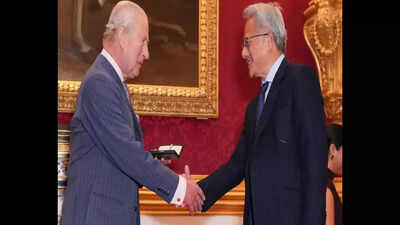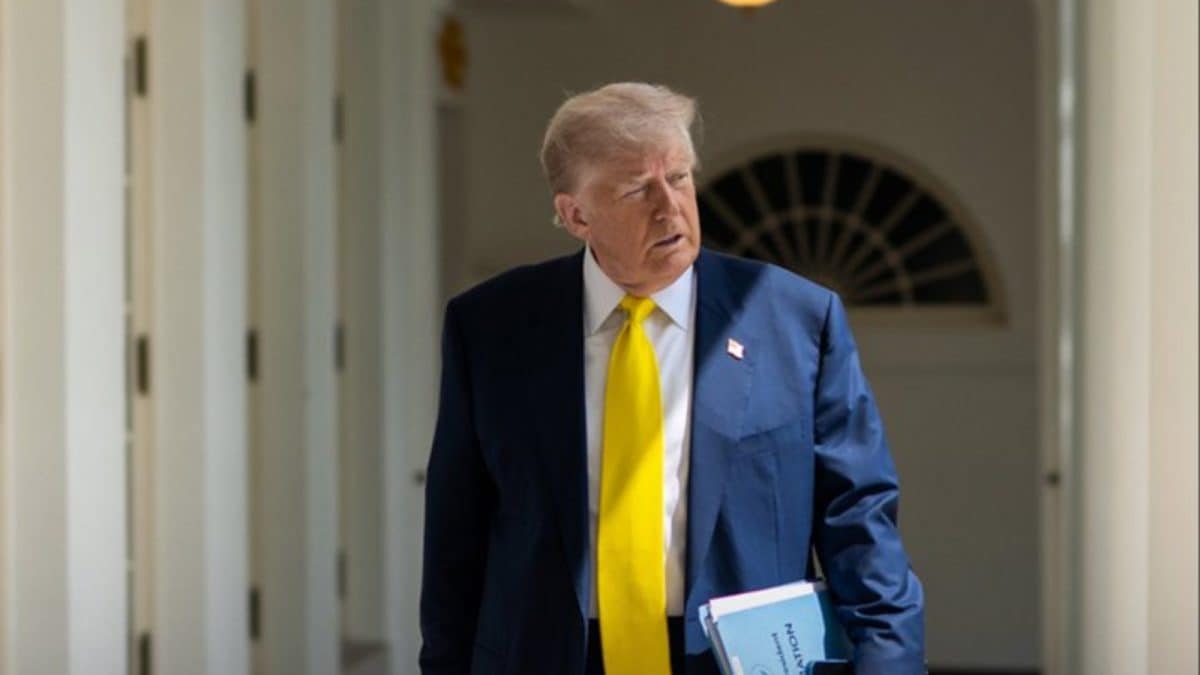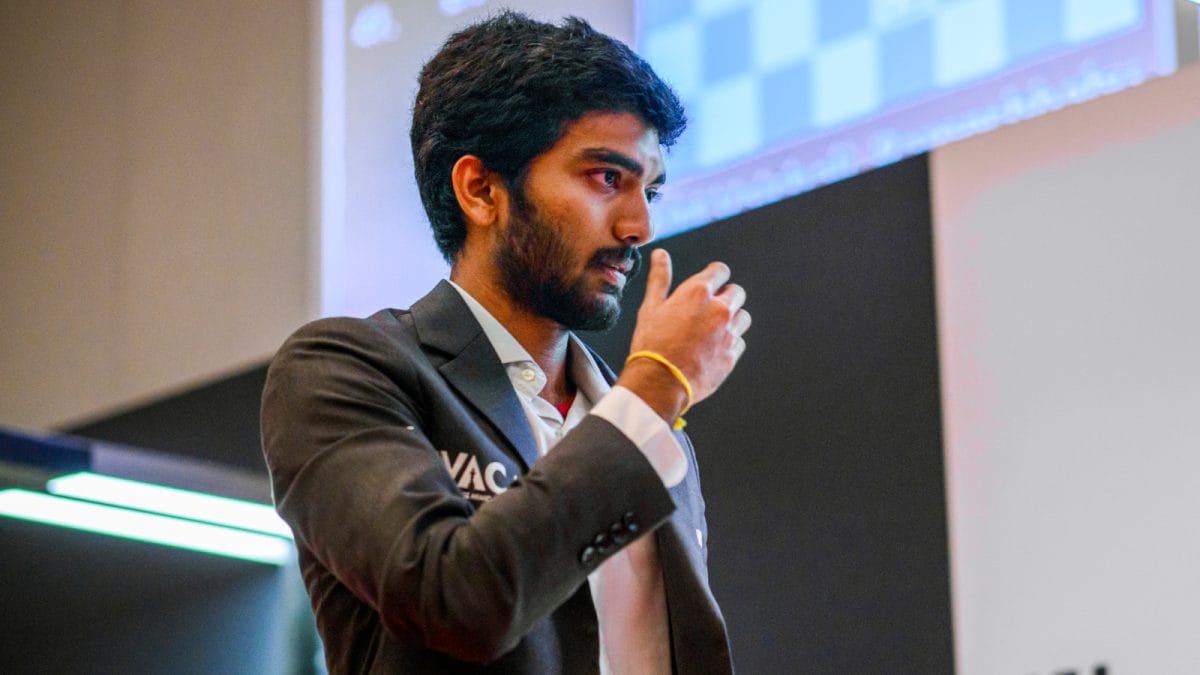ARTICLE AD BOX

King Charles’s AI warning to Nvidia CEO Jensen Huang (Image source: Reuters)
During the Queen Elizabeth Prize for Engineering (QEPrize) ceremony held at St James’s Palace in London, King Charles III presented a letter on artificial intelligence safety to Jensen Huang, co-founder and chief executive of Nvidia.
The exchange took place as the monarch honoured seven engineers recognised for pioneering advances in artificial intelligence and machine learning. According to the BBC, the King’s message reiterated his ongoing concern about the rapid pace of AI development and the risks associated with its misuse. The interaction followed up on remarks King Charles made at the 2023 AI Safety Summit, where he had called for global cooperation to ensure AI technologies are deployed responsibly.
King Charles hands Jensen Huang a personal letter on AI safety
The Queen Elizabeth Prize for Engineering ceremony recognised the 2025 laureates who have contributed to groundbreaking innovations in artificial intelligence. King Charles presented each recipient with the award and personally spoke with them about their work. When he met Nvidia CEO Jensen Huang, the King handed him a sealed letter and reportedly said, “I need to talk to you.” Huang later told reporters that he planned to read the letter carefully, adding that the King “obviously cares very deeply about AI safety” and about ensuring that the technology is developed for the benefit of society, not its detriment.
What the King’s letter on AI addressed
According to the BBC, the letter that King Charles handed to Huang referenced the monarch’s earlier address at the 2023 AI Safety Summit at Bletchley Park. In that speech, he had warned of the “extraordinary potential and profound risks” of artificial intelligence and urged global leaders and technology firms to place human values at the centre of AI development. While the contents of the letter have not been made public, it is understood to reiterate the same themes encouraging developers to act with foresight, accountability, and awareness of the social implications of their work.
Huang described the letter as a “meaningful reminder” that AI’s power must be guided by human ethics.
The King’s stance on AI safety and innovation
King Charles’s engagement with AI issues reflects a broader effort by world leaders to understand and regulate the technology’s rapid evolution. During the QEPrize ceremony, the King reportedly told guests that the pace at which new technologies are emerging is “astonishingly fast” and that society must ensure AI “serves humanity rather than endangers it.”
The monarch’s perspective is rooted in concern over how AI might influence employment, misinformation, warfare, and social stability.
His comments also aligned with calls from policymakers and experts for stronger international frameworks to govern AI development.
Broader significance of the event
The King’s interaction with Nvidia’s chief executive symbolised a rare intersection between engineering recognition and public advocacy.
The Queen Elizabeth Prize for Engineering was established to celebrate innovation that benefits humanity, and the inclusion of AI pioneers among this year’s winners reflects the technology’s growing importance across industries. Nvidia, whose chips power most of today’s AI systems, has become a central figure in discussions about both the potential and the ethical responsibilities of artificial intelligence.
By delivering the letter directly to Huang, King Charles underscored that questions of AI safety are no longer confined to policy meetings or academic circles but are now part of mainstream global leadership dialogue.
Public and industry reactions
Following the ceremony, the King’s remarks and gesture drew widespread attention within the tech and policy communities. Industry analysts noted that the exchange highlighted the need for collaboration between innovators and regulators.
Fei-Fei Li also mentioned in interviews that her brief conversation with the King touched upon “how AI can be developed in service of people and not just technology for its own sake.
” The BBC noted that while the King’s role is ceremonial, his consistent attention to issues such as climate change, sustainability, and now AI, signals a growing royal interest in the governance of emerging technologies.
Limitations and what remains undisclosed
As reported by the BBC, the content of the King’s letter has not been disclosed publicly, and it is unclear whether it contained specific recommendations or was primarily symbolic. It is also unknown whether the letter was part of a broader correspondence with other technology leaders or specific to Nvidia. The Royal Household has not released an official statement detailing the exchange. The gesture, however, aligns with the King’s pattern of privately engaging with scientists and experts on topics of global concern.

 1 hour ago
3
1 hour ago
3








 English (US) ·
English (US) ·